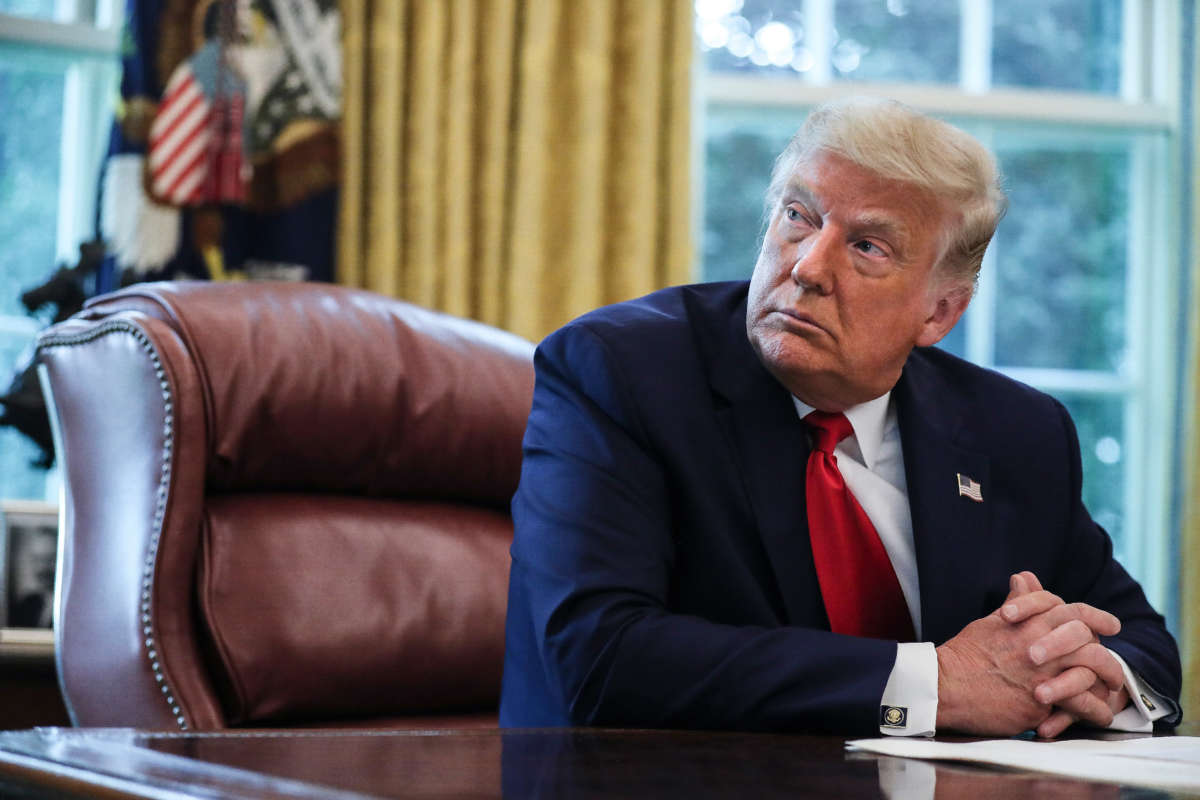Former President Donald Trump cannot win an acquittal from any potential indictment related to the attack on the Capitol by arguing that he genuinely believed his false claims of election fraud, two highly regarded legal experts said.
Laurence Tribe, professor emeritus at Harvard Law School, and Dennis Aftergut, a former federal prosecutor and current counsel to the advocacy group Lawyers Defending American Democracy, made the argument in a joint op-ed for The Hill, published on Thursday evening. The two experts said that a claim of sincere belief in errant claims of 2020 election fraud cannot be recognized as a reasonable defense, should Trump face prosecution for his actions in the days leading up to and on January 6, 2021, when a mob of his loyalists attacked Congress during its certification of the Electoral College results.
Trump could face prosecution from the Department of Justice (DOJ). According to statements made by Attorney General Merrick Garland, the DOJ is carefully watching the January 6 public hearings, and could make a prosecutorial decision based on the evidence the panel puts forward.
If the DOJ decides to charge Trump with a crime, the former president might argue that he genuinely believed his own election fraud claims, and that his attempts to overturn the election were therefore justified. Tribe and Aftergut say such an argument isn’t legally plausible.
The idea that “Trump lacked the ‘criminal intent’ necessary for conviction because he didn’t think he was doing anything wrong” is “incorrect,” the two legal minds wrote in their piece, because the law “distinguishes between refusing to accept inconvenient truth to get your way and mental disturbance sufficient to excuse illegality, between adopting strategic blindness and not knowing your facts from a hole in the ground.”
Trump frequently heard from his aides — both on the campaign and within his administration — that his fraud claims were inaccurate. Former attorney general William Barr described them under oath to the January 6 committee as “bullshit.” The former president decided to ignore the advice of his aides and pursued actions that many say were illegal.
Whether Trump was a true believer in those claims, however, is irrelevant, Tribe and Aftergut said. The former president’s actions aren’t justified by his beliefs because there’s a process to address those complaints that don’t require illegal activities.
Trump and his allies pursued the legal route, asking dozens of courts to allow him more time to prove fraud occurred. In each of those instances, the courts found that his claims were baseless.
“An elected official doesn’t get to strong-arm others to have them violate the law, even if he genuinely believes that pervasive voter fraud turned an election,” the duo wrote. Losses in court cases didn’t give Trump the right to say “I’m going to stay in power anyway,” they added.
While Garland considers whether to take legal action against Trump or anyone else who conspired to overturn the election, most Americans recognize that Trump, at the very least, was responsible for the violence of January 6. A recent Politico/Morning Consult poll found that 57 percent of Americans believe Trump bears some or a lot of responsibility for that day’s violence, while only 35 percent say he doesn’t. When asked if elected officials in general should face prosecution from the DOJ if they attempted to overturn an election, 67 percent said they should.
Join us in defending the truth before it’s too late
The future of independent journalism is uncertain, and the consequences of losing it are too grave to ignore. To ensure Truthout remains safe, strong, and free, we need to raise $27,000 in the next 24 hours. Every dollar raised goes directly toward the costs of producing news you can trust.
Please give what you can — because by supporting us with a tax-deductible donation, you’re not just preserving a source of news, you’re helping to safeguard what’s left of our democracy.
